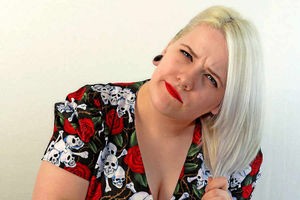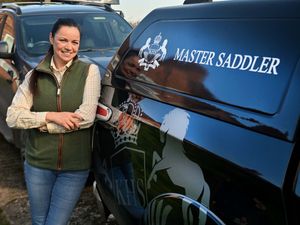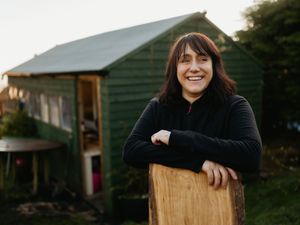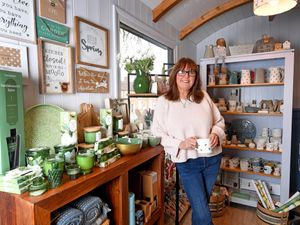Kirsty Bosley: The language of compassion is one all of us can understand
Like so many people around me at the moment, I'm in a state of confusion.

It's taken me a while to realise that it's OK to plead a lack of understanding about the sorry state of affairs happening to our fellow humans in Syria. And beyond, for that matter.
In the way it was supposed to, the photo of a poor dead boy on a beach in Turkey cut me to the core.
My own nephew is not dissimilar in age, size or stature to Aylan Kurdi. Seeing his little lifeless legs draped over the arm of the man that came to collect him from his place face-down in the surf broke my heart.
It's the way my nephew's legs hang over my sister's arm when she carries him to bed.
It wasn't necessarily the whole picture that upset me so much – the world has hardened us all to horrors in a multitude of ways. It was more the small, unnatural details that threw me. His wet hair and the inevitable water in his ears, the fact that no child should ever be carried in the arms of someone they don't know; he could have been asleep as he was lifted from the sand in a place he doesn't know, away from his mother and with no certain final resting place.
Like any normal human, I wanted to cradle him, dry his hair and warm his little body. But it was too late for anyone to do anything at all but look upon his tiny body with despair.
And as I write this, I know more people are at risk and I just can't understand why.
The complexities of war, conflict and political unrest confuse me, and it really upsets me that I can't get a handle on it.
I feel I'm a pretty well-rounded person, with a fairly good education and I read the news websites of at least four publications every day in a desperate quest for knowledge.
I'm angry I know more about what Kim Kardashian has worn at every juncture of her pregnancy than I do about why children are being washed up on beaches.
Websites seek to give me their spin on why the world is the way it is, but none are giving me the raw facts. I wonder whether this is because there is no logical reason for children to drown in a tumultuous sea, their desperate parents seeing no other way forward.
Surely there's no other reason why a mother would put their child into a boat, unless the situation was so dire and desperate she felt she had no choice. Perhaps I'm looking for sense in a senseless world.
I know so many of you reading this will feel the same. The fact of the matter – as I see it in the most simple of ways – is there are people just like me, my sister and my nephew, caught up in wars that they didn't sign up for. Their homes are being destroyed, their lands demolished and their futures are bleak at best and at worst non-existent.
Like I would in that situation, like I'm sure we all would, they are fleeing, looking for safe places to go where they can sleep at night without worrying whether they'll wake up in the morning. Or where they can go to the shops to buy food without negotiating a warzone – simple things we take for granted. And this is why I find it so upsetting when people around me struggle to humanise the crisis.
After the picture of Aylan went viral, those around me rightly fired up in woe, anger and frustration. We saw more powerful images than ever of people seeking safety. The words 'migrant' and 'refugee' were confused, as were the lines between those looking to escape warzones and those that just want to come to the UK to make a better life for themselves, financially. To many, it had blended into much of a muchness, it seems.
It perplexes me there are loving parents in my social groups that aren't overly concerned by the current state of affairs. I don't know whether it's just a coping mechanism so they don't have to acknowledge the true horror of the refugee's plights, but many seem to be finding other things to point out as a way of diverting their attention.
"What about our heroes?" read one particularly frustrated post online, "What about the British servicemen that are homeless in the UK? We should be looking after them instead of worrying about those from other countries."
This did nothing but muddy the water for me further. Sure, we should be taking care of those in need here at home. But is it really a case here of taking care of 'us' or 'them'? I'm pretty sure that realistically there's enough money to go around.
Perhaps politicians should stop spending a small fortune on maintaining two houses? Or claiming for meals on expenses? Or if big corporations were paying proper tax instead of squirrelling it away in offshore accounts there'd be more than enough money to house and look after these 'heroes', our fair share of refugees and plenty more.
But instead, in the way this kind of situation always seems to do, it's made normal people feel aggravated by those in true need. Why help a refugee when there's a man sleeping rough in town?
Let's be realistic. It's not a case of taking food from the mouth of 'one of our own' and giving it to refugees – this is a much bigger problem.
Yes, the government needs to do something about it. But in the mean time, while there are endless talks upon talks taking place, there are families living in terror, sleeping rough, being bombed and children washing up on beaches. Right now.
There are always going to be so many things happening that many of us can't understand, politically. I know so many people that would rather bury their heads in the sand than face them. The 'I'm not voting because they're all the same' people.
But that said, amidst all of the confusion, the international language of love and compassion is one that all of us can understand, no matter who we are. No matter what side of a border we happen to have been born on.
So why close your ears to it?





